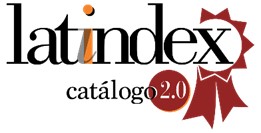Teaching mathematics in disadvantaged contexts: Success as a function of quality resources, quality teaching and quality professional learning
DOI:
https://doi.org/10.48489/quadrante.22891Keywords:
Disadvantaged contexts, early years mathematics, professional learning, teacher change, teaching practiceAbstract
Students from disadvantaged contexts in Australia continue to be 1 to 2 years behind other students in both International and National measures for numeracy. The results of research clearly indicate that quality teachers make a difference. This study focuses on the impact that a model of professional learning, the RoleM Professional Learning model (RPL) had on one school over a three-year period. The participating teachers (n = 12) taught in the first three years of school (Foundation to Year 2, 4.5 – 8 year old). To ascertain the effectiveness of RPL, the teachers were interviewed three times a year. The results indicate that quality teaching is related to the provision of quality resources and quality professional learning. As teachers move towards exhibiting the characteristics of expert teachers they progress through five stages and it takes at least two years for this progression to occur. Fundamental to these gains is the collaboration with experts.










